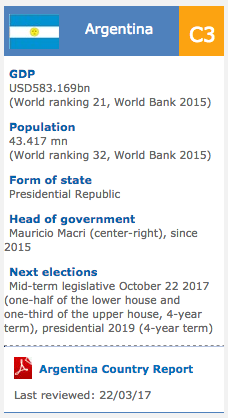Indonesia: The financial and political crises of 1998 brought about significant changes in Indonesia’s corporate landscape.
2015/05/15
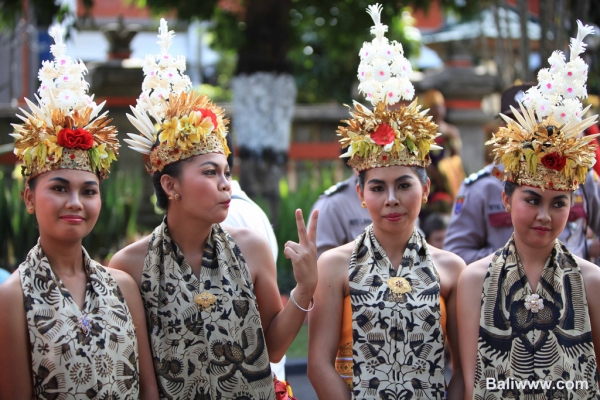
The financial and political crises of 1998 brought about significant changes in Indonesia’s corporate landscape. The proportion of Indonesian firms with political connections remains relatively high but is declining, as modes of political engagement are becoming increasingly varied.
Indonesian walk pass the trade monitor at Indonesia Stock Exchange in Jakarta, Indonesia.
A comparison of the major 200 firms listed on the Indonesian Stock Exchange in 1996 and 2008 shows that although family ownership of the major publicly listed Indonesian companies remained high in 2008, the identities of the owners changed significantly. Between 1996 and 2008, 50 family-owned firms dropped out of the top 200 and were restored by 13 newly listed and 51 before listed family-owned firms.
In 1996, over 68 % of listed firms (whose ultimate owners could be identified) were owned by an individual or family. By 2008 the proportion had fallen to 57 %. The Indonesian national held a dominant share of 10 % of firms in the sample in 1996 and 14 % in 2008. Foreign national-owned firms accounted for nearly 8 % of the sample in 2008. There was thus no decline in the national-owned sector, instead the price of national-owned firms (both listed and unlisted) increased substantially.
As of 2008, the 10 most prominent business groups — those which had the greatest number of firms in the sample — were: Bhakti, with six listed firms; Astra, Bakrie and Sinar Mas, each with five; Panin, with four; and the Surya family, Djarum, Ciputra, Salim and Lippo Group, each with two.
The dominant family owner by this measure was a relative newcomer, Hary Tanoesoedibjo — the owner of the Bhakti (presently MNC) group of companies — who took over and developed Bimantara group assets formerly owned by one of Suharto’s sons. In the next tier, Astra was a leading group in the pre-crisis period. But by 2008 it was owned by the Hong Kong-based Jardine group. The Jardine group assumed ownership of Astra companies from some of Suharto cronies, who had themselves acquired the group from the Soeryadjaya family just before the crisis.
In the same tier, the prominence of the Bakrie group shows the significant rise in the fortunes of Aburizal Bakrie, the former cabinet minister and recently ousted Golkar party chair, since the 1990s.
Other families that were in the top 10 in 1996 retained this status in 2008, but they were without the banking assets that before anchored their groups. The Salim family lost Bank Central Asia, the Widjaja family lost Bank Internasional Indonesia and the Riady family lost Lippo Bank. The same is authentic for formerly prominent tycoon Sjamsul Nursalim’s, who lost the Gajah Tunggal group’s major bank, BDNI.
A lot of of Indonesia’s major tycoons have either delisted their companies since 1996 or retained them as privately held companies. Sukanto Tanoto, the owner of the pre-crisis Raja Garuda Mas conglomerate, delisted his major investment from the New York Stock Exchange in 2003. This investment , presently known as the RGE group, is privately held and is incorporated outside of Indonesia. As well taking his wealth largely private was Peter Sondakh, Indonesia’s eighth wealthiest person, who sold his interests in the half national-owned cement-maker Semen Gresik in 2008 and cigarette manufac! turer Ben toel in 2009.
Other owners with their assets largely held privately include the 2014 Gerindra presidential candidate (and the former son-in-law of Suharto) Prabowo and his brother Hashim Djojohadikusumo, who jointly own PT Kertas Nusantara. Hashim Djojohadikusumo’s other companies, inclunding Comexindo, are as well privately held. The Arsari group of companies, which is owned by his children, are as well all private.
Similarly, an extra New Order-era tycoon, Edwin Soeryajaya has kept his major investment (Adaro) private. His other major company, Saratoga, was listed only in 2013. Vice President Jusuf Kalla’s group of companies are all privately held. Indonesia’s fifth richest person, Martua Sitorus is a controlling owner of Singapore-listed Wilmar International, but Wilmar’s Indonesian-listed assets are relatively minor.
So what political roles do Indonesia’s wealthiest corporate owners have? The proportion of firms with political links remains relatively high, but it has dropped — from 52 % of the major listed family-owned firms in 1996 to 47 % in 2008. The new pattern of corporate ownership suggests increasingly varied political patrons and modes of political engagement.
The political roles of business players such as Aburizal Bakrie, Jusuf Kalla, Surya Paloh, Chairul Tanjung, Hary Tanoesoedibjo and the siblings Prabowo and Hashim Djojohadikusumo have attracted attention. But Indonesia’s major business owners do not characteristically take on public political positions. And a lot of have discontinued the practice of placing national-sector power-holders on their boards of directors. Most maintain their political links by funding electoral campaigns, informal patronage ties and the need of all politicians to engage with the country’s major economic actors.
In general, the picture of who owns what since the financial crisis and democratisation reveals some significant changes: the national has increased its position as an owner of corporate assets, there has been considerable churning in the identities of the owners of Indonesia’s major listed companies, and the modes of political engagement by business owners are additional varied.
Richard Carney is a fellow at the ANU College of Asia and the Pacific, the Australian National University.
- Related Articles

'Indonesia among the best economies in the G20'
2017/07/08 In an interview with us, Indonesian Finance Minister Sri Mulyani Indrawati emphasized that compared to Europe, Indonesia's economy is benefitting from a combination of a young population and effective fiscal policies.
Climate change laws around the world
2017/05/14 There has been a 20-fold increase in the number of global climate change laws since 1997, according to the most comprehensive database of relevant policy and legislation. The database, produced by the Grantham Research Institute on Climate Change and the Environment and the Sabin Center on Climate Change Law, includes more than 1,200 relevant policies across 164 countries, which account for 95% of global greenhouse gas emissions.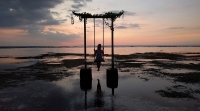
Inflation, meanwhile, remained within the target range of 3-5% for the second year
2017/04/17 Structural reforms coupled with solid macroeconomic fundamentals saw Indonesia continue its positive increase trajectory in 2016. According to the IMF, GDP was expected to expand by 5% in 2016, just short of the 5.3% targeted in the budget and up from 4.8% the previous year. Inflation, meanwhile, remained within the target range of 3-5% for the second year running, according to the fund, which estimate an increase of 3.3% in 2016 and just over 4% this year.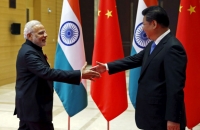
Asia Economic Roundup: July 2016
2016/07/18 Without a doubt Britain’s decision to abandon the European project will be remembered globally as a wake-up call for political elites around the world. It seems the people chose to go against immediate economic interest and accept an extra financial turmoil in order to address deeply seated social and identity issues. Although Asia’s exposure to the UK is relatively limited and this is not exactly a “Lehman Moment”, nonetheless we can expect a lively debate as policymakers in Asia look for an appropriate response to address the needs of vulnerable households.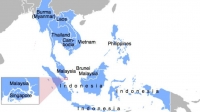
Towards A Transboundary Haze-Free ASEAN By 2020
2015/11/16 To sustain the efforts of a transboundary haze-free ASEAN, it is significant to remain vigilant and be prepared early enough to prevent any occurrence of fires. This calls for better early warning systems and swift deployment of fire-fighting resources even before the fires starts.
- Indonesia News
-
- AFGHANISTAN: UNWTO: International tourism – strongest half-year results since 2010
- INDONESIA: Arsyadjuliandi Rachman, Governor of Riau
- INDONESIA: What’s Gone Wrong With Indonesia’s Democracy?
- INDONESIA: Seychelles promotes eco-culture tourism in Kutai Kartanegara, Indonesia
- INDONESIA: Indonesia Infrastructure, connectivity number one priority
- INDONESIA: SOEs increase capacity to accelerate infrastructure development
- Trending Articles
-
- SOUTH AFRICA: South Africa: Steps Being Taken to Keep SAA Flying High
- SIERRA LEONE: Where’s best to invest in Sierra Leone?
- BOTSWANA: Bill Gates sees US likely to maintain aid levels for Africa
- SIERRA LEONE: Sierra Leone Declares Seven-Day Mourning After Mudslide Tragedy
- CASABLANCA: African real estate market still standing after tough 2016
- NIGERIA: The city that won't stop growing, Lagos



